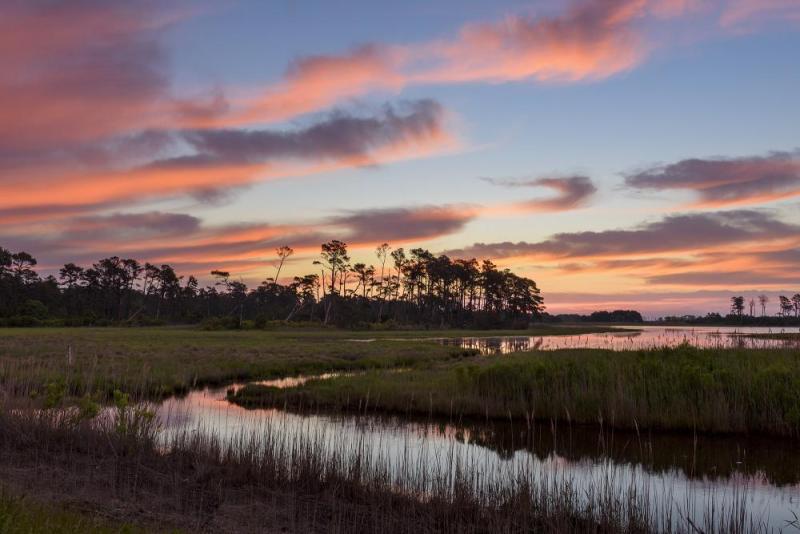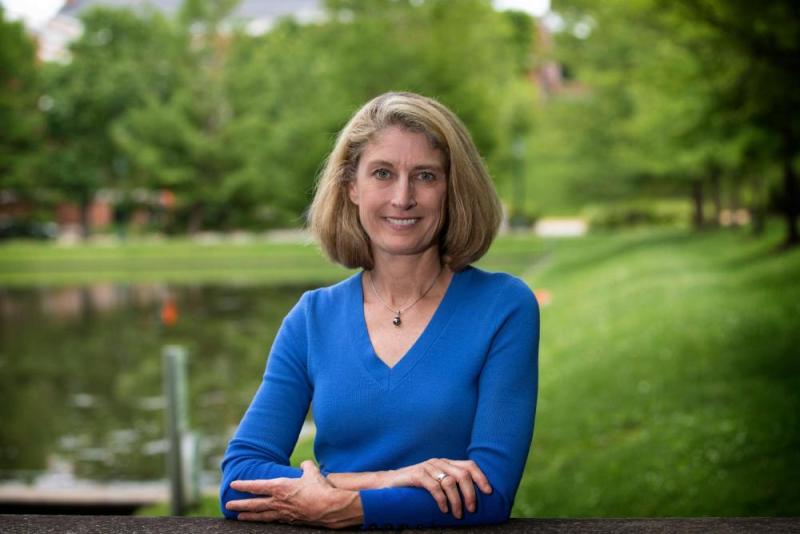‘Coastal Futures Hub’ Aims to Protect Rural Communities Threatened by Climate Change

Since 1986, faculty and students of the University of Virginia’s Department of Environmental Sciences have conducted scientific research on the impact of global climate change on the coastal landscapes of Virginia’s Eastern Shore.
This fall, a new initiative led by the University’s Environmental Resilience Institute will expand those efforts by creating a network of policymakers, community stakeholders, educators and researchers from UVA’s College and Graduate School of Arts & Sciences, School of Engineering and Applied Science, School of Architecture and several cross-disciplinary research institutes to help Eastern Shore residents use that science to make practical decisions about how they will respond to the changes threatening their communities and their economy.
As rising sea levels and increasing storm activity flood and erode coastal properties, compromise drinking water, wipe out fisheries and infrastructure and diminish the agricultural value of the soil, rural coastal communities that suffer from a lack of access to scientific information and expertise and a lack of capacity to respond to those challenges are being hit disproportionately hard by the long-term impacts of climate change.
In response, the Environmental Resilience Institute, under the leadership of its director, Karen McGlathery, has launched the new Coastal Futures Hub, which aims to increase engagement between scientists and these communities by bringing local leaders and community members together with researchers to define the challenges they face and to produce the data and the knowledge they need to develop practical and realistic strategies for responding to those challenges together.
Funded by a $5 million grant from the National Science Foundation, the initiative is one of only five such projects funded by a new NSF program, called “Coastlines and People Hubs for Research and Broadening Participation,” or CoPe. The program emphasizes bringing multidisciplinary solutions to bear on complex challenges facing the nation’s coastal systems, and encourages scientists to work directly with stakeholders in those communities, especially those from underrepresented segments of the population.
“Virginia is a hot spot of climate change,” McGlathery said. “We have the highest sea-level rise along the U.S. Atlantic coast, and we have more storms that are hitting the coast now than at any previous time in recorded history, and rural coastal communities are a greater risk from climate change because they just don’t have the resources to deal with the challenges that it brings.”
The focus of the Coastal Futures Hub will be to develop an interactive, open-source resource called the Climate Equity Atlas that will provide data, modeling and visualization tools that will empower stakeholders to make effective decisions about how they will adapt to the changes they face. The atlas will also help those communities understand the impacts of existing social and economic factors that will help them make decisions that are equitable for all members of the community.

(Photo: Dan Addison / University Communications)
“This project will build on the 35 years of scientific research we’ve done as part of the [Long-Term Ecological Research project], but it goes way beyond what that project is about,” McGlathery said. “This is much more focused on the people part of the story. We’re working with the local communities to hear from them what their needs are and to combine those needs with the science so we can build something they can then take over and use beyond the life of the project. The lived expertise is just as important as the science expertise.”
“[The Coastal Futures Hub] embraces the spirit of the Coastlines and People Program,” said Scott M. Freundschuh, co-chair of the CoPe program at the National Science Foundation. “Community stakeholders are fully integrated in the project at every stage, from the project’s inception and development of the research questions, to the execution of the project’s activities. The project meaningfully broadens participation of traditionally underserved and vulnerable coastal communities, the result being the co-production of knowledge that will enable more effective planning for disasters, minimize risk and facilitate recovery.”
The Coastal Futures Hub also represents an opportunity for environmental scientists to collaborate with experts from a variety of different disciplines. In addition to scientists from the Long-Term Ecological Research project, the program will involve faculty from UVA’s School of Engineering and Applied Sciences; researchers from UVA’s Environmental Resilience Institute and Biocomplexity Institute, both of which focus on developing cross-disciplinary solutions to complex problems; and specialists from the University’s Equity Center and its Institute for Engagement and Negotiation. The program will also partner with the College of William & Mary’s Virginia Coastal Policy Center and Old Dominion University’s Resilience Collaborative, which is focused on building community resilience through research, education and outreach.
“I think what’s really unique about this is that we’re pulling together a base of environmental science with social science research and the focus on equity, and it’s those three legs of the stool that make it so powerful and so important,” McGlathery said.
Larry Band, an eco-hydrologist in the Department of Environmental Science and the Department of Engineering Systems and Environment, is one of the program’s co-principal investigators who will focus on flood hazards, soil and groundwater salinization, and threats to the water supply that are caused by climate change. He is confident that the key to addressing the complex set of inter-related problems that climate change poses is working from a variety of perspectives, from both interdisciplinary researchers and the communities of the Eastern Shore.
“The Eastern Shore is an area of rapidly changing demographics and economy. So when you ask, ‘Are the problems focused on environmental science or the engineering infrastructure or equity or community sociology?,’ the answer is ‘yes,’” Band said. “And you can’t approach these problems without an integrated approach across those areas.”
“One of the most interesting parts of this project is based on the co-production of knowledge and on participatory research,” Band said. “So, rather than having scientists parachuting in, taking data and going back to their universities to do analysis and publish papers, the major questions and problems we’re going to address are being developing with the communities that live there with an eye toward asking, ‘Who benefits from changes in the environment and who suffers?’
“More than any other project I’ve worked with, this one starts with community.”




